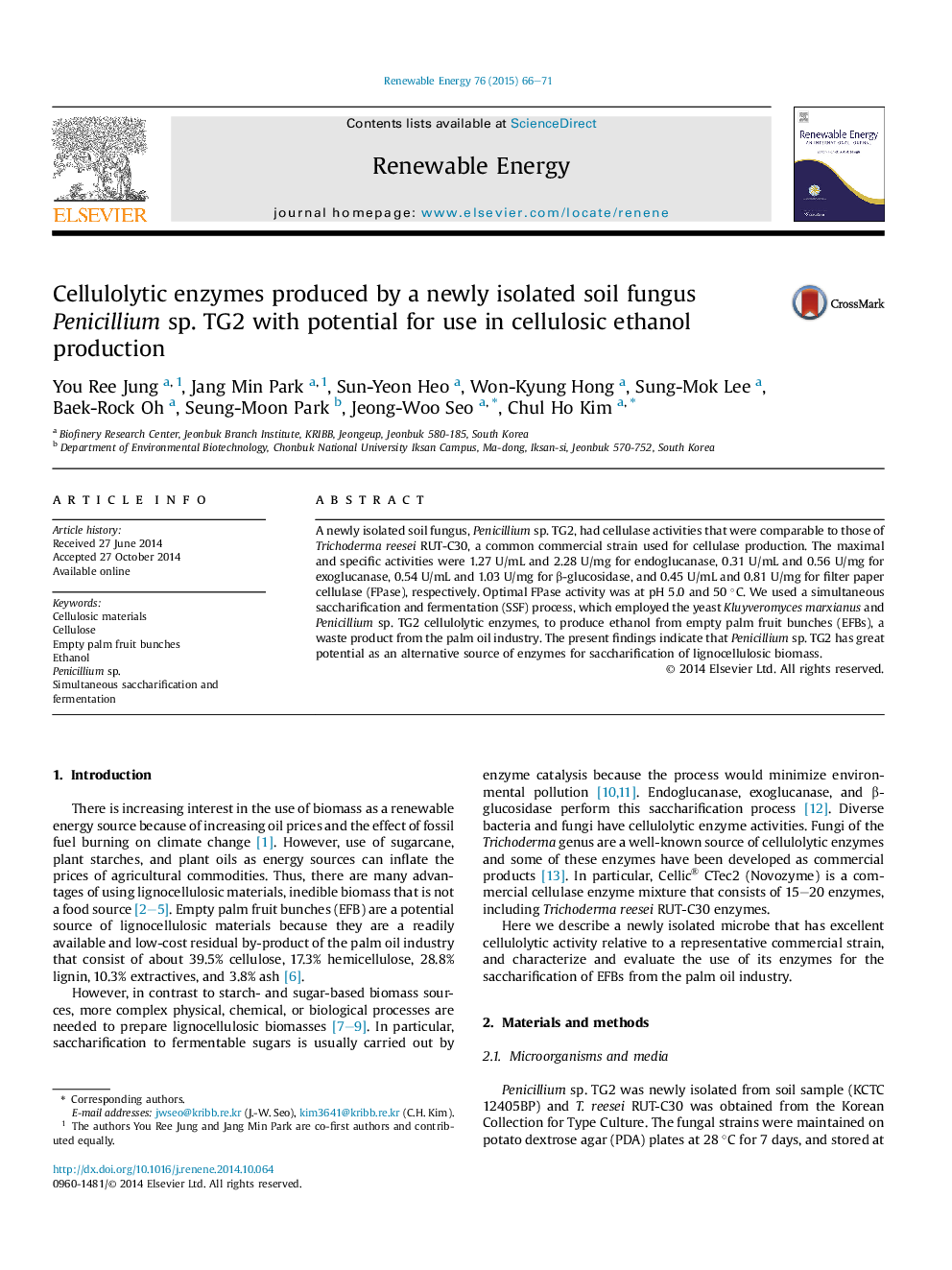| Article ID | Journal | Published Year | Pages | File Type |
|---|---|---|---|---|
| 6767339 | Renewable Energy | 2015 | 6 Pages |
Abstract
A newly isolated soil fungus, Penicillium sp. TG2, had cellulase activities that were comparable to those of Trichoderma reesei RUT-C30, a common commercial strain used for cellulase production. The maximal and specific activities were 1.27 U/mL and 2.28 U/mg for endoglucanase, 0.31 U/mL and 0.56 U/mg for exoglucanase, 0.54 U/mL and 1.03 U/mg for β-glucosidase, and 0.45 U/mL and 0.81 U/mg for filter paper cellulase (FPase), respectively. Optimal FPase activity was at pH 5.0 and 50 °C. We used a simultaneous saccharification and fermentation (SSF) process, which employed the yeast Kluyveromyces marxianus and Penicillium sp. TG2 cellulolytic enzymes, to produce ethanol from empty palm fruit bunches (EFBs), a waste product from the palm oil industry. The present findings indicate that Penicillium sp. TG2 has great potential as an alternative source of enzymes for saccharification of lignocellulosic biomass.
Keywords
Related Topics
Physical Sciences and Engineering
Energy
Renewable Energy, Sustainability and the Environment
Authors
You Ree Jung, Jang Min Park, Sun-Yeon Heo, Won-Kyung Hong, Sung-Mok Lee, Baek-Rock Oh, Seung-Moon Park, Jeong-Woo Seo, Chul Ho Kim,
